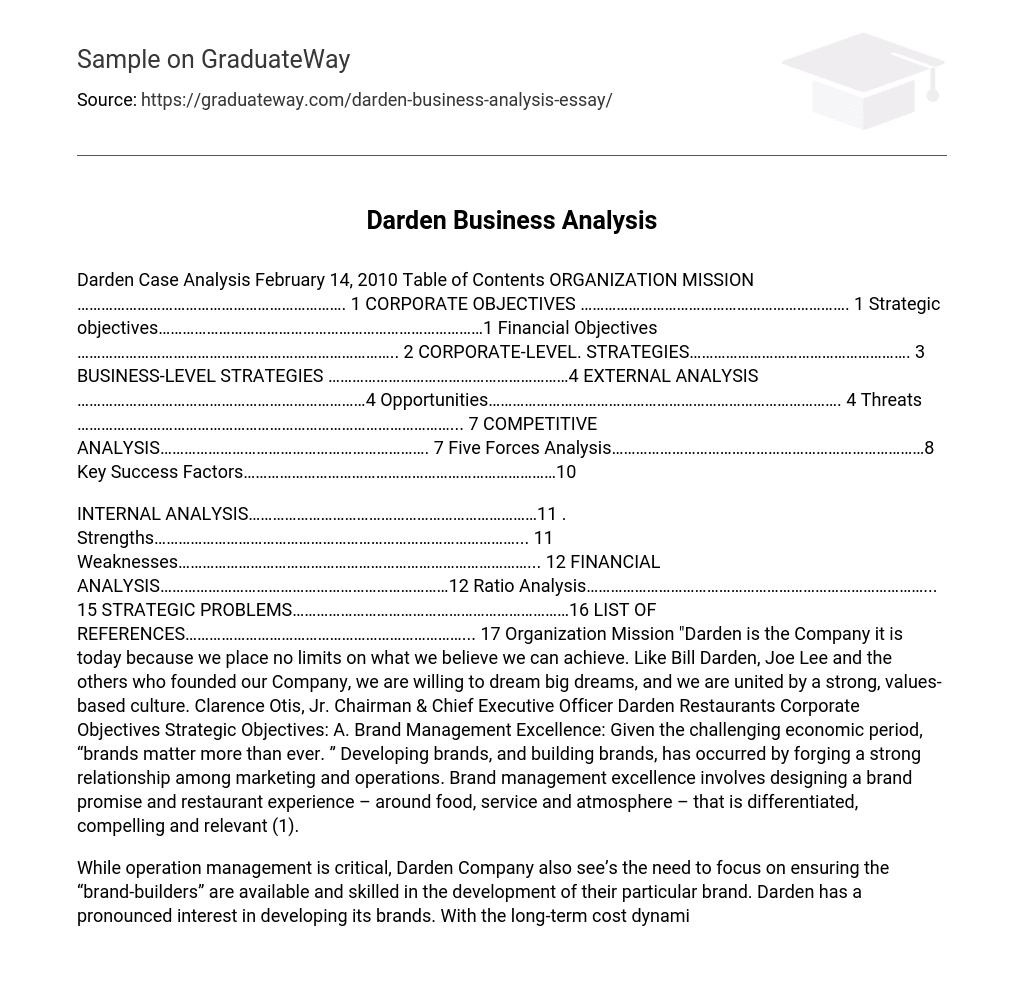Developing and building brands require a strong relationship between marketing and operations. The key to achieving brand management excellence is to create a unique and compelling brand promise and restaurant experience, focusing on food, service, and atmosphere, that sets it apart from others.
Darden Company recognizes the importance of operations management and the need to focus on ensuring that the “brand-builders,” who are responsible for developing their specific brand, are available and skilled. Darden is highly interested in further developing its brands. Given the current long-term cost dynamics, Darden acknowledges that the support provided to the brands must be even more cost-efficient and effective than before.
Certain duplicated brand support services will no longer be brand specific but will instead become “shared centers of excellence” through consolidation. Darden aims to reduce costs and increase efficiency in higher expense departments by pursuing transformational initiatives in supply chain, facilities management, energy usage, and water utilization. With the competitive pressures faced by the company, collaborative work among its 180,000 employees is more important than ever. The three major brands should function as test labs, sharing ideas and personnel while retaining their distinctive identities.
Otis believes Darden’s new headquarters in Orlando, a $100 million state-of-the-art building, surpasses his vision for the company. Over 1,400 executives and restaurant support staff are set to move there in October, as they currently work in 12 buildings spread across a 2-mile area. Under the new setup, the test kitchens of the different brands will be adjacent to each other, representing Otis’s emphasis on sharing both practically and symbolically.
While Darden’s competitors are focusing on providing deep discounts, Darden differentiates itself by emphasizing the value it offers to consumers. In an interview with USA Today, Darden’s CEO emphasized the importance of customer value and justified their commitment to not offering discounts. While Applebee’s and Chili’s may offer two-for-twenty deals, Darden’s brands prioritize highlighting the value they provide to their customers. Otis, the CEO, acknowledged that they could easily implement these discounts now but expressed concerns about the challenges of making them sustainable in a volatile economy.
Manager in Training: Darden fosters the growth of their management team internally, selecting forty percent of the class from their restaurant’s hourly employees. Their program has been expanded to provide more opportunities for managers to enhance their skills. Each year, approximately 100 managers from one of their brands, Olive Garden, are sent to Tuscany, Italy for training.
Pursuing the opening of new stores is a priority for Darden. The company, with its 1,700 units, has been performing well across its renowned brands. Darden intends to open between seventy-two to eighty restaurants in the fiscal year 2010.
Darden’s CEO, Clarence Otis, stated that the company’s future growth would mainly be achieved by capturing a larger market share. He recognized that Americans were already dining out less frequently before the financial crisis affected consumer budgets.





